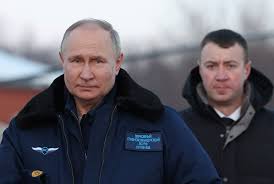The Influence of Putin in Russia and Beyond

Introduction
The leadership of Vladimir Putin has been a defining element of Russian politics and international relations since he first came to power in 1999. His policies and actions increasingly shape the geopolitical landscape, influencing everything from global security to economic partnerships. Understanding Putin’s role is crucial for comprehending contemporary issues facing not only Russia but also the world at large.
Putin’s Domestic Policies
Putin’s governance style has been characterised by centralising power, limiting dissent, and controlling media narratives. Under his regime, political opposition has been stifled, with significant measures taken against activists and journalists. The 2021 Duma elections saw significant ‘unfair’ practices according to international observers, further solidifying his grip on power. In 2022, a series of constitutional amendments enabled him to extend his presidency potentially until 2036, raising concerns about democratic backsliding in Russia.
Foreign Policy and Global Relations
Putin’s foreign policy has generally emphasised a return to great power status for Russia. A pivotal moment was the 2014 annexation of Crimea, which prompted widespread international condemnation and sanctions from Western nations. This move was reflective of his broader strategy to expand Russian influence in former Soviet states and counter NATO’s presence in Eastern Europe. Recent invasions of Ukraine in 2022 have exacerbated tensions with the West and altered global energy markets, reminding the world of the implications of his leadership.
Current Events and Future Outlook
As of late 2023, Russia continues to face major challenges, including a faltering economy exacerbated by ongoing sanctions and the costs of the war in Ukraine. Reports indicate rising tensions with NATO and the ongoing military engagement in Ukraine presenting serious implications for regional stability. The conflict has unified many Western countries against Russian aggression, bringing them closer together in a geopolitical sense.
The prospects of Russia under Putin raise many questions. Analysts forecast that as domestic and international pressures mount, he may adapt his strategies, potentially seeking to forge alliances with non-Western powers like China and India while continuing to isolate the West.
Conclusion
Vladimir Putin’s influence on Russia remains profound and complex. While he has the power to reshape domestic policies and international alignments, the sustainability of his regime amid domestic dissent and global opposition poses a significant challenge. As Vladimir Putin navigates this precarious landscape, the future of Russia’s role on the world stage is uncertain, warranting close attention from global observers.
